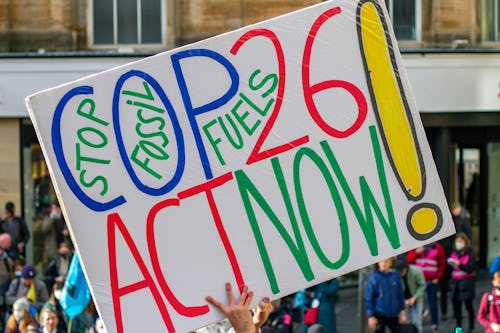
The United States is abandoning new fossil fuel projects — at least overseas. On Thursday, 20 nations including the U.S., United Kingdom, and Canada announced a commitment to end all public financing for fossil fuel projects abroad by the end of 2022. That pledge calls for the money that would have gone to extracting oil and other fossil fuels to instead be spent on clean energy expansion.
The Aligning International Public Finance With the Clean Energy Transition agreement is a significant one, and one that is coming just in the nick of time. Earlier this year, the International Energy Agency published a report that warned new fossil fuel exploration needs to come to an end by next year if we have any shot at achieving net-zero emissions by 2050 and avoiding the worst effects of climate change. With these 20 countries on board, there will be significant momentum toward meeting that moment — though more major players still need to join the effort.
On top of the noteworthy victory of putting an end to new fossil fuel projects, the pledge will also be a boon for clean energy efforts. Oil Change International estimates that if these countries follow through with their commitments, it would result in an additional $15 billion being invested in renewable energy projects. That is long overdue. G20 countries, including several of the signatories on this new pledge, were found to spend 2.5 times as much on fossil fuel projects abroad than on clean energy alternatives.
While the new commitments should be viewed as a significant win, there is still plenty of wiggle room here for doing damage to the planet. For one, the agreement doesn’t put a stop to any oil and gas projects that are already planned. Countries will be able to continue funding efforts to extract dirty-burning fuels until the end of 2022, and there is a lot of money going toward those projects: $63 billion per year, according to Oil Change International.
The pledge is also missing some key signatories. Japan, Korea, and China are three of the world’s biggest financiers of overseas oil projects, and they have not signed on to the agreement. Until they sign on, a huge amount of cash is going to continue flowing into fossil fuel projects that could push us to the brink.
And then there is oil at home. While the U.S. and other countries certainly have not been shy about pumping money into countries abroad in order to exploit their land, they’ll be able to continue doing that at home unabated. The Biden administration has made some concessions that will help limit the damage that we do within our borders, but we’ve still got a long way to go in order to actually prevent the planet to warming from unsustainable levels. This commitment is just a start.







